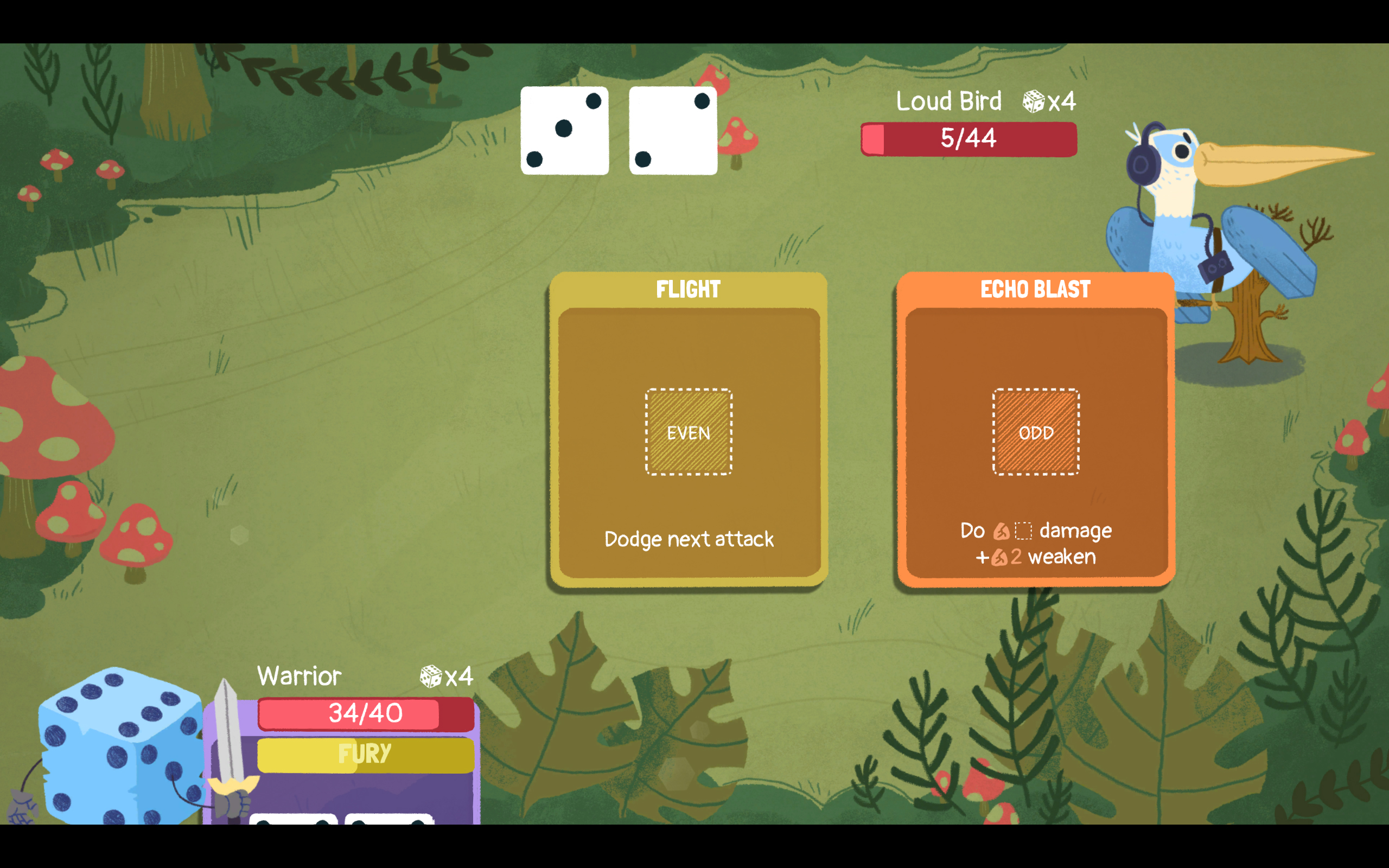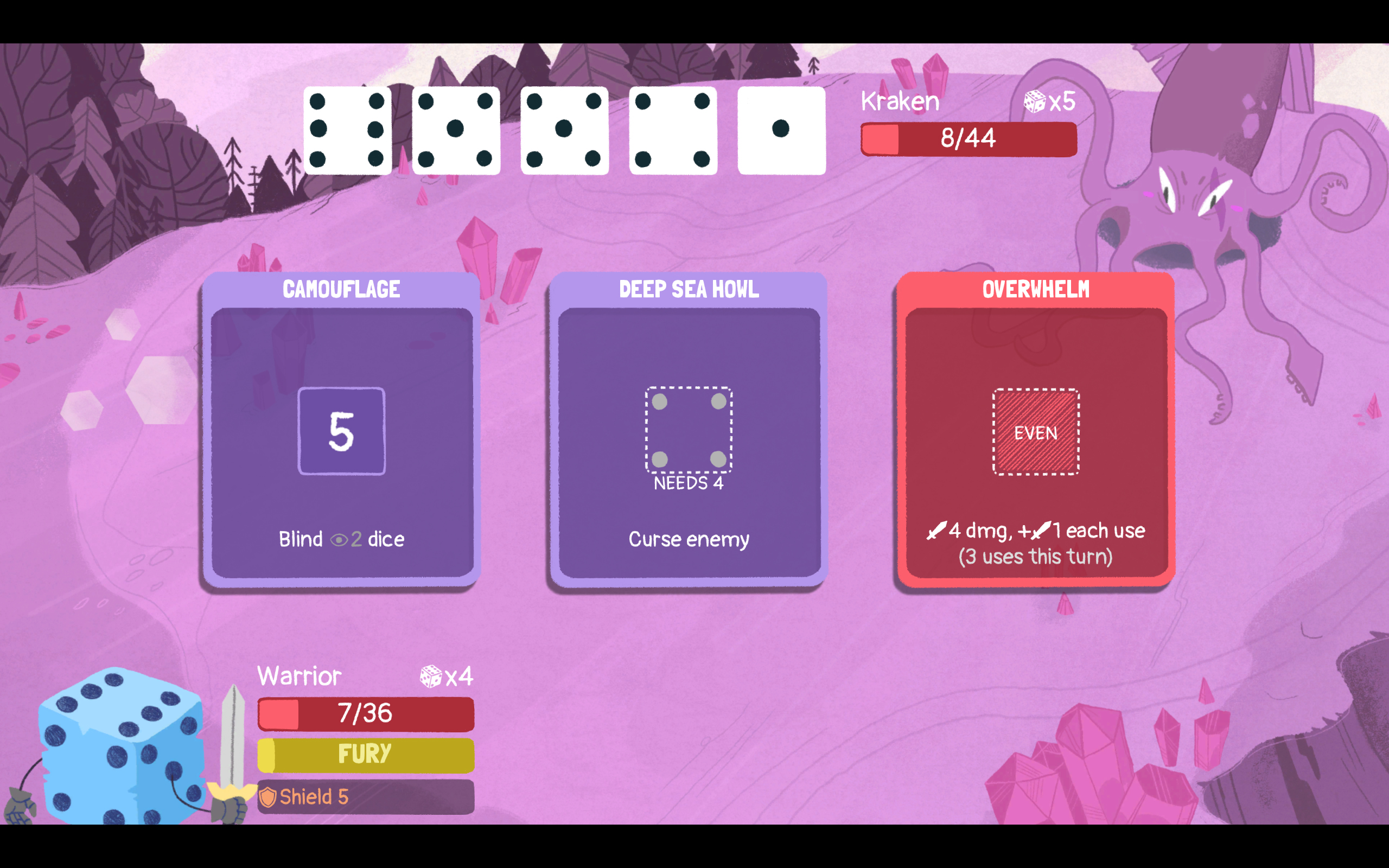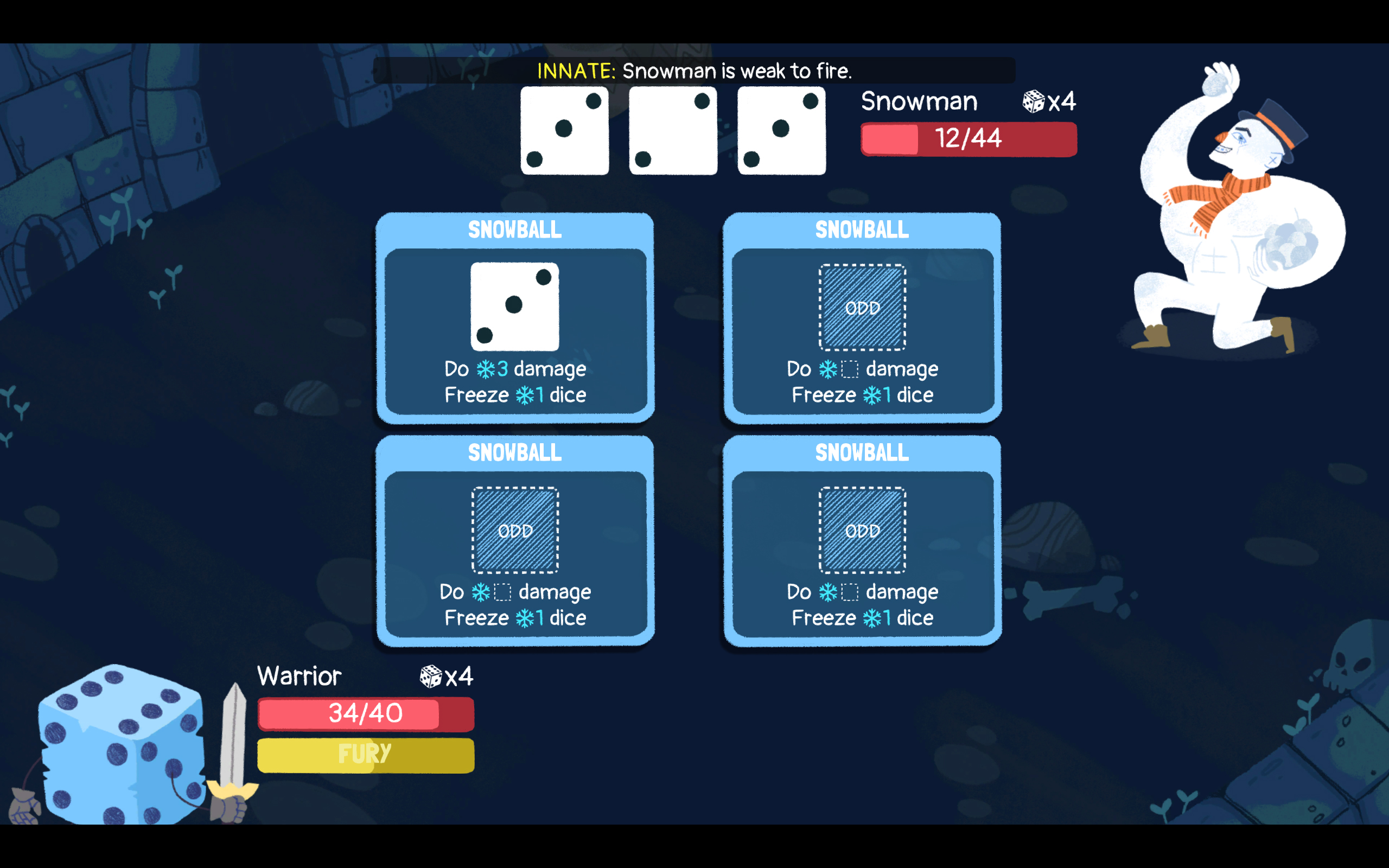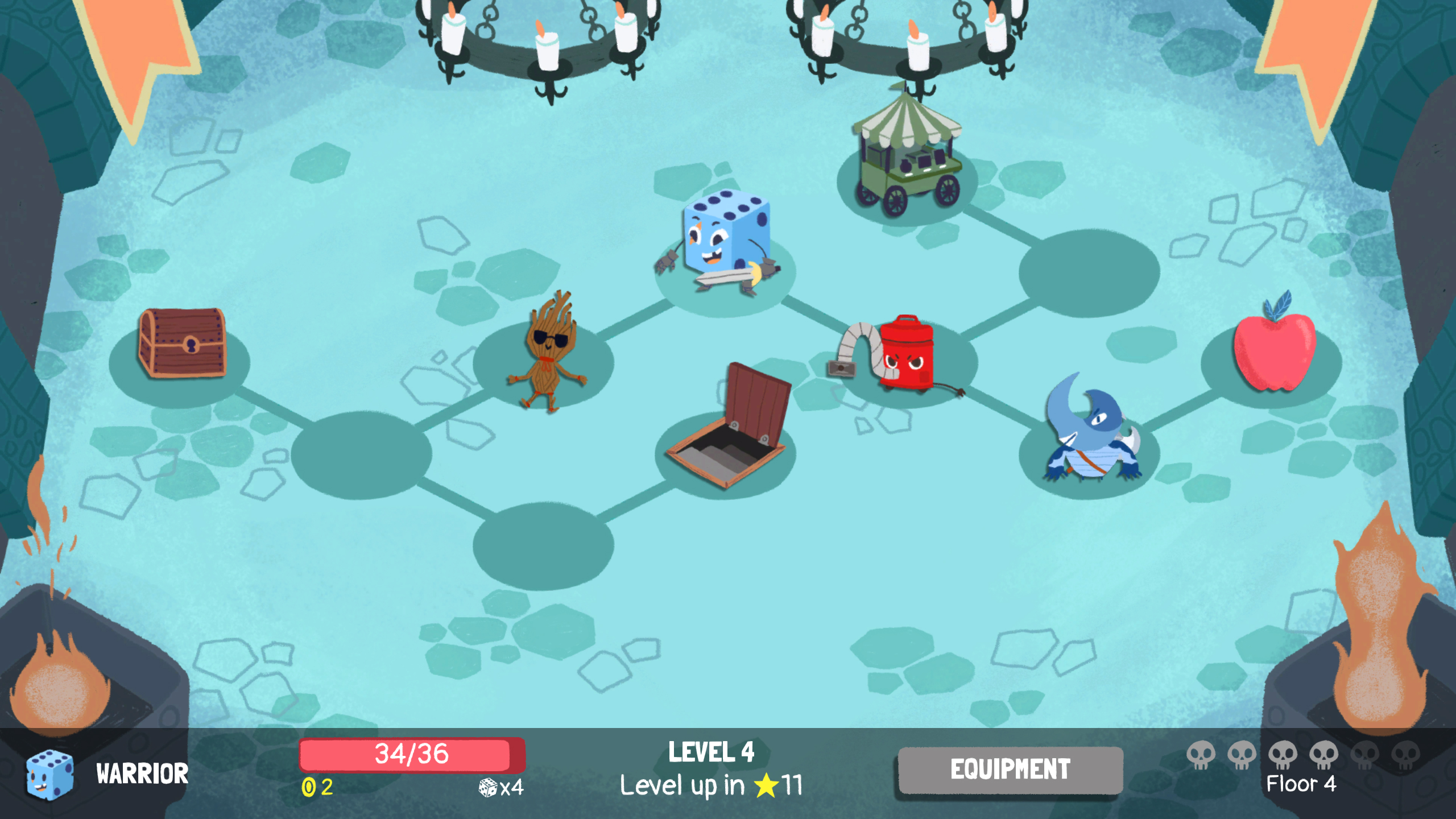Our Verdict
Endearing, compulsive, and just weird enough to want to keep exploring.
PC Gamer's got your back
What is it? A crossbreed of CCG and roguelike dungeon-crawling.
Expect to pay: $15/£11.39
Developer: Terry Cavanagh
Publisher: Terry Cavanagh
Reviewed on: i5 6500, RTX 2080 TI, 32GB RAM
Multiplayer? None
Link: Official site
Dicey Dungeons rolls you a few dice, presents you with cards which harness those dice in damage-dealing or character-buffing fashion, and pits you against a series of opponents in an offbeat dungeon-crawling RPG setting. It feels vaguely like playing a CCG while wearing x-ray specs.
The roguelikes and card games Dicey Dungeons is referencing with its art and design would hide away their RNG elements, but Terry Cavanagh’s new game puts the dice under a spotlight. Quite literally: the setup is that of a gameshow, so while you’re fighting sneezy hedgehogs and sharply dressed hammerhead sharks there’s a studio audience gasping and cheering over it all. They ooh and aah when you open chests in its simple dungeon maps. There’s even a wheel of fortune. Those disparate elements—rolling dice, D&D-inspired questing, and the gameshows of yesteryear—shouldn’t gel together, but somehow it all feels like the most natural thing in the world while you’re playing.

Cavanagh’s previous games, VVVVVV and Super Hexagon, were about attritional runs against a conceptually simple but supremely demanding challenge. This—well, this is not. It’s actually all rather friendly, starting you off with a tutorial and building on itself very gradually with each encounter. And sure, rolling two dice and dragging them over into two weapon card slots to deal damage might not sound captivating on paper, but every new element it introduces makes you stop for a second and re-evaluate where this is all leading.
Within the opening hour you’re dealing out shock, fire, and freezing damage, locking opponents’ dice, and firing off double-attacks when your limit break bar fills up from taking damage. And crucially, you feel like some kind of mastermind tactician while you do it.
That’s the trick in Dicey Dungeons. You’re always being given the chance to make a smart decision, whether it’s holding off on doing damage to pool some dice into a healing card—these are activated on hitting a certain high number, say 16—or using buffs to hit exact numbers required by status effect cards. I’m convinced there’s still another layer of RNG beneath the hood that makes for the most entertaining fights—I mean, the Loud Bird I encountered at level 5 rolled one double, an even and two dice under 5 every round when I fought him—but with the information you have, there are always opportunities to pull off something that feels clever.

At some point you’re certain to pause and wonder how you ended up putting such brainpower into the meta of a chirpy cartoon dice game.
At the end of each dungeon run is a boss and a new unlockable character. Bosses offer surprisingly little challenge though, and are sometimes outmatched by one or two of the enemies you had to best on the way to them. It's unusually lenient from the developer who made surviving for ten seconds in Super Hexagon feel like a once-in-a-lifetime feat of skill. Nevertheless, with the boss roasted and a new character for the taking, it’s back to the dungeons for a series of ever-escalating challenges.
There’s a deceptively massive chunk of game here, and if the likes of Hearthstone or Gwent never clicked with you it’s an easy way to slide into the world of agonising over deck builds. You only have space for a handful of cards, but striking the right balance between attack, defense, and modifiers is just as engrossing. At some point you’re certain to pause and wonder how you ended up putting such brainpower into the meta of a chirpy cartoon dice game.

Like an over-eager Tinder date, the vibe is very much casual and lighthearted at first, but before too long you’re made aware that the expectation is absolutely that of a long-term prospect. Unlike a stranger you swiped on the internet though, Dicey Dungeons doesn’t keep liking your Instagram posts months after you stop playing it.
And, to jettison that analogy entirely before it’s stretched well beyond its limit, it does a surprisingly good job of world-building. When you fight a Baby Squid, its attacks involve squirting ink which blinds you to some of your dice. Hedgehogs use a lot of spikes. The aforementioned Loud Bird uses sound to its advantage. This is all via the medium of dice rolls, you understand, but it’s easy to be pulled into the surreal ‘90s cartoon-like world just the same.
Longer term play is limited by the absence of multiplayer, but as a slice of solo deck-building Dicey Dungeons is engrossing, not to mention buoyed by great art and presentation. I do feel that faint itch to just load up Gwent and tend to my decks there instead when I play, but Gwent doesn’t look anywhere near as much like Ren & Stimpy as this.
Endearing, compulsive, and just weird enough to want to keep exploring.
Phil 'the face' Iwaniuk used to work in magazines. Now he wanders the earth, stopping passers-by to tell them about PC games he remembers from 1998 until their polite smiles turn cold. He also makes ads. Veteran hardware smasher and game botherer of PC Format, Official PlayStation Magazine, PCGamesN, Guardian, Eurogamer, IGN, VG247, and What Gramophone? He won an award once, but he doesn't like to go on about it.
You can get rid of 'the face' bit if you like.
No -Ed.



